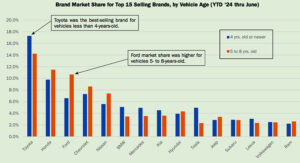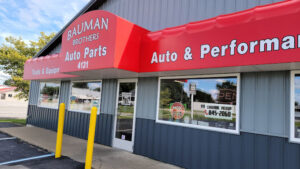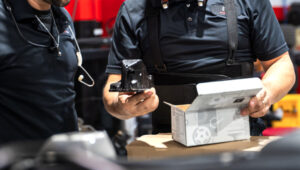Minnesota dealerships have been contacted to suggest content displayed on customer waiting room TVs may be copyrighted; penalties can be “substantial”
St. Paul, Minn.—The Motion Picture Licensing Corporation (MPLC) has contacted some Minnesota dealerships suggesting that content displayed on waiting room TVs may be copyrighted and requires proper licensing.
The Federal Copyright Act of 1976 offers broad protection to creators of audio and visual content. The Act regulates the “public performance” of movies, TV, and other audiovisual “copyrighted” content from sources like broadcast, cable or satellite television, DVD, Blu-ray, and streaming services, according to the Minnesota Automotive Dealers Association (MADA) in a news release.
Showing such content in public areas — like a service department waiting room — is referred to as a “public performance” (as opposed to watching a movie in the privacy of one’s own home),
General Rule: Dealers must be properly licensed to publicly show copyrighted audiovisual content.
- It is unlikely that a dealer holds a license to show DVDs or streaming content from services like Netflix. Such performances are almost always licensed solely for personal use. No public performance is permitted.
- Cable and satellite programming providers may offer “public performance” licensing for their business customers. MADA advises dealers to check with their provider to see if the package they purchased is a commercial use package and if the appropriate licenses are included.
There’s a very narrow exception to the general rule requiring licensing which was enacted by Congress in 1976. Congress acted to overturn a 1975 United States Supreme Court decision which had narrowly construed the “public performance” language of the Act in a manner that gave businesses broad protections for simply turning on broadcast radio and TV for their customers’ enjoyment.
Congress broadly defined “public performance” and then created what is known as the “homestyle” exception from licensing. The exemption only applies if a dealer uses a “single receiving apparatus” which is of a “kind commonly used in private homes” to show broadcast TV programming. The exception does not permit additional speakers or an enhanced sound system.
The homestyle exemption has been narrowly viewed by the courts. Dealers should not rely on it without seeking legal counsel, MADA advises.
Penalties for failing to obtain a license can be substantial. They can range from $750 to $30,000 per violation with higher amounts possible for “willful” violations.
MADA notes that the Motion Picture Licensing Corporation is a legitimate organization and does have the authority to protect the owners of copyrighted materials. Dealers who show content and have not been properly licensed by their provider may wish to purchase umbrella licensing from MPCL.
Outside counsel aided MADA in the preparation of this article.














Comments are closed.